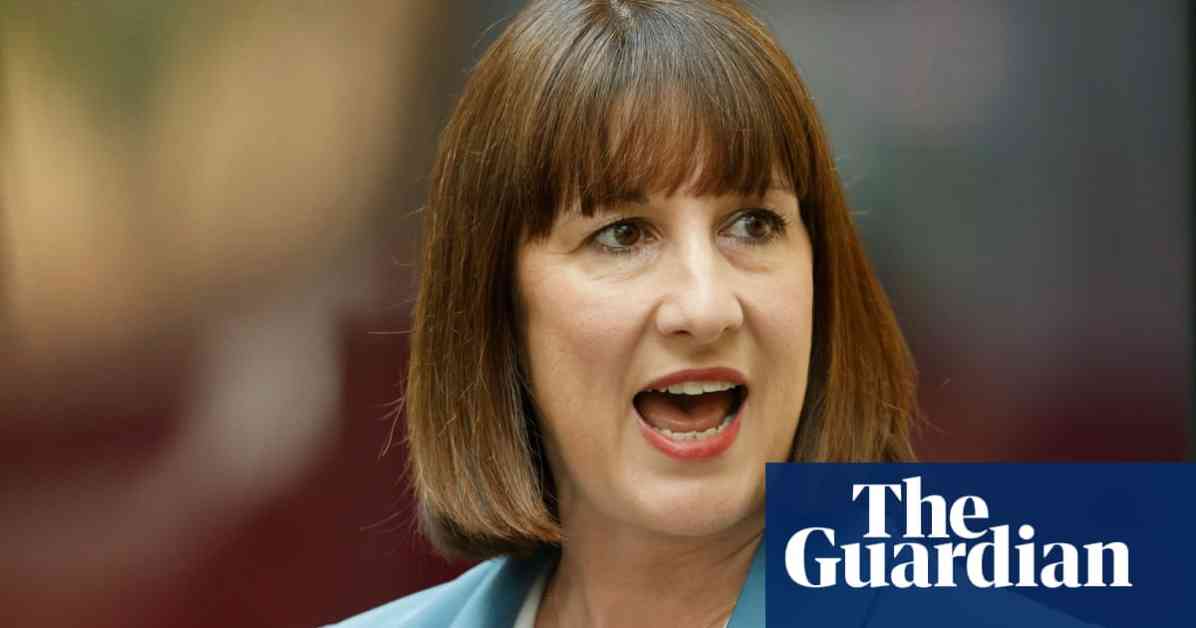Labour’s Tax Red Lines Restrict Reeves’ Budget Flexibility, IFS Reports
Rachel Reeves, the newly appointed Chancellor of the Exchequer, is facing a challenging task as she prepares to deliver her first budget next month. According to a report by the Institute for Fiscal Studies (IFS), Reeves has limited room for maneuver due to Labour’s pledge not to increase the four main taxes that contribute to 75% of all revenues. This restriction has led to speculation that Reeves may have to look towards alternative revenue-raising measures to balance the books.
The IFS highlighted the fact that Labour has promised not to raise income tax, national insurance, VAT, or corporation tax, which are the primary sources of government revenue. This leaves Reeves with few options when it comes to increasing revenues to address the government’s spending deficit. The think tank suggested that Reeves may need to consider raising capital gains tax, inheritance tax, and stamp duty on property sales to generate additional income.
However, the IFS warned against implementing tax hikes that could have negative economic consequences in the long run. They emphasized the importance of finding a balance between increasing revenue and avoiding measures that could harm economic growth. The report also pointed out the challenges facing the government in terms of reducing the national debt, which has reached levels not seen since the 1960s.
Reeves inherited a difficult financial situation from the previous government, with a significant budget shortfall that needs to be addressed. The IFS highlighted the need for bold and decisive action to ensure that government spending can be sustained in the long term. They suggested looking at alternative sources of revenue, such as increasing council tax on higher-value properties and reforming inheritance tax exemptions.
The IFS also recommended against raising stamp duty on property sales, citing the negative impact it could have on the housing market. They urged Reeves to focus on making the tax system fairer and more efficient by addressing issues such as taxes on pensions, capital gains, and inheritances. By taking steps to reform the tax system, Reeves could not only increase government revenues but also create a more equitable and growth-friendly environment.
Challenges and Opportunities in Tax Policy
As Rachel Reeves grapples with the task of balancing the government’s books, she faces a number of challenges in terms of tax policy. Labour’s commitment not to raise the four main taxes puts constraints on her ability to generate additional revenue. This limitation has forced Reeves to explore alternative options for increasing government income, which may involve making unpopular decisions that could impact taxpayers.
One area where Reeves could potentially increase revenues is by raising capital gains tax. The tax on profits made from selling assets such as stocks, real estate, or businesses is currently lower than income tax rates. By bringing capital gains tax more in line with income tax, the government could generate significant additional revenue. However, this move could also discourage investment and entrepreneurship, which could have negative consequences for economic growth.
Inheritance tax is another potential target for revenue-raising measures. The current threshold for inheritance tax is £325,000, with a rate of 40% on the value of an estate above this threshold. By reducing exemptions for assets such as pension wealth, business assets, and agricultural land, the government could generate more revenue from inheritance tax. However, this could also lead to criticism that the tax system is becoming too burdensome for individuals passing on their wealth to future generations.
Balancing Economic Growth and Fiscal Responsibility
The challenge for Rachel Reeves is to strike a balance between promoting economic growth and ensuring fiscal responsibility. While increasing taxes may be necessary to address the government’s spending deficit, it is important to consider the potential impact on the economy. Tax hikes that discourage investment, entrepreneurship, and consumer spending could ultimately harm economic growth and lead to lower tax revenues in the long term.
One option for increasing revenue without negatively impacting economic growth is to reform the tax system to make it more efficient and equitable. By closing loopholes and exemptions that benefit the wealthy, the government could generate more revenue without resorting to across-the-board tax increases. This approach would not only increase government income but also ensure that the tax system is fair and transparent for all taxpayers.
The Road Ahead for Rachel Reeves
As Rachel Reeves prepares to deliver her first budget as Chancellor of the Exchequer, she faces a daunting task in balancing the government’s books. With limited flexibility due to Labour’s tax red lines, Reeves must carefully consider how to increase revenues without harming economic growth. The recommendations from the Institute for Fiscal Studies provide valuable insights into potential areas for reforming the tax system and generating additional income for the government.
Reeves has the opportunity to make bold and decisive changes to the tax system that could have a lasting impact on the economy. By focusing on creating a fairer and more efficient tax system, Reeves can ensure that the government has the resources it needs to fund essential services and investments. With careful planning and strategic decision-making, Reeves can navigate the challenges ahead and set the UK on a path towards sustainable economic growth.












